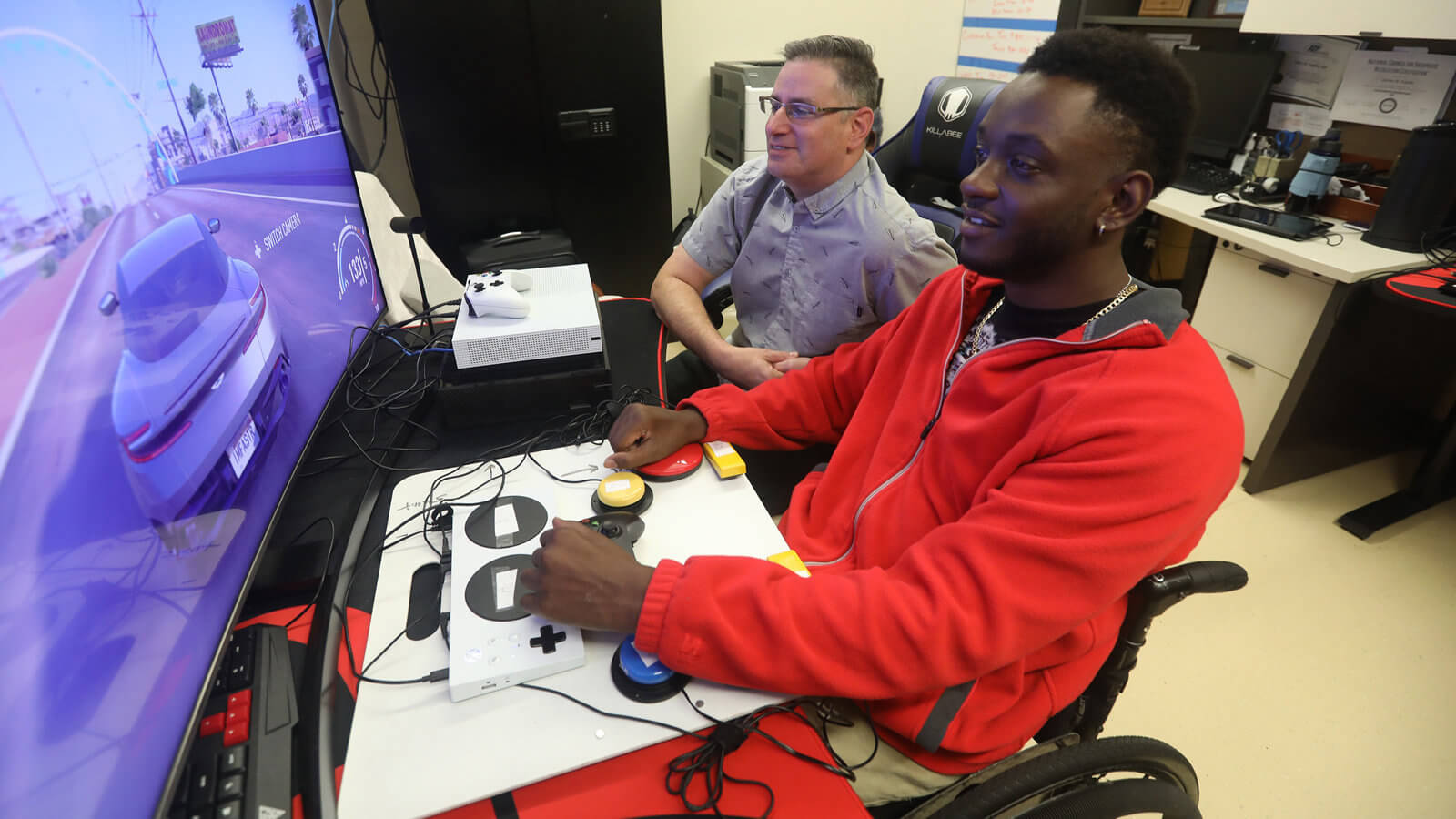Something to look forward to: Microsoft is partnering with the VA to allow disabled veterans to play video games. Not only will this empower vets who are struggling to adapt to civilian life, but also allow Microsoft to improve upon their Adaptive Controller to allow even more people to play games.
Microsoft's Xbox Adaptive Controller was one of the more genuine gaming moments of 2018. The sheer number of inputs made gaming more accessible to people who would not otherwise be able to use a standard controller due to any number of disabilities. To further the goal of inclusive gaming, Microsoft is now partnering with the U.S. Department of Veteran Affairs to deploy the Adaptive Controller to select rehab facilities and allow veterans to play games again.
Returning from active duty can be a bit traumatizing for many veterans. The sudden change from hectic battlefield to normal civilian life can be unsettling. Microsoft believes that video games can help ease stress by offering the familiarity and camaraderie that can come through video games.
"We're looking for platforms for veterans to interact with each other, and the Xbox Adaptive Controller can be that access point to get involved in this world and in the gaming community," says Dr. Leif Nelson of National Veterans Sports Programs for the VA. "Gaming is now everywhere in the world, and while people tend to think of it as isolating, we're finding that it actually has the opposite effect and can increase interactions with other veterans and folks who are non-veterans. I think this can be a tool in the rehabilitation process to achieve a lot of different goals."
Jeff Holguin was one of the veterans highlighted in Microsoft's announcement:
For Jeff Holguin, gaming was a way to cope with the depression and post-traumatic stress disorder he experienced after being discharged from the U.S. Coast Guard in 2003 following an injury. He'd planned on a career in the military, but that identity was suddenly gone. Facing a series of surgeries and feeling adrift in the civilian world, Holguin isolated himself. He turned to gaming, an activity he'd enjoyed since childhood, and found the sense of inclusion he was craving.
"It gave me an outlet, a virtual efficacy within a world that I didn't feel like I had a place in anymore," says Holguin. "I made a lot of social connections and friends through that virtual space."
Holguin went back to school, studying clinical psychology with a focus on trauma and PTSD. He has designed research for Microsoft around mixed-reality devices and learning outcomes and is also a clinical psychology doctoral intern at the Northern Arizona VA Health Care System in Prescott, Arizona. For Holguin, gaming provided a space where he could gradually reintegrate into post-military life.
"It was a sense of belonging and a sense of safety," he says. "When you have trauma and you're depressed, sometimes even just a little bit of stimulation is too much and you just don't have the cognitive or emotional resources to deal with other people's well-meaning interactivity.
"Gaming gives you what we might call exposure therapy, meaning you get a little bit of socialization, but when you're ready to turn it off you can turn it off," Holguin says. "Gaming provided some significant therapeutic value for me."
The partnership with the VA will start with an initial 22 rehabilitation centers. The goal is to better understand how the Adaptive Controller will work for veterans. In an interview with The Verge, Xbox chief Phil Spencer stated that Microsoft wants to get feedback in order to further improve the capabilities of the Adaptive Controller.
In the same interview, Spencer revealed that Microsoft wants the Adaptive Controller to be platform agnostic, even working on rival consoles.
"Our conversations with other platforms about supporting the Adaptive Controllers been positive," says Spencer. "We've talked to Valve about it, we've talked to Nintendo about it, we've talked to Sony about it. This isn't something where I feel like we've got to break down some walls. My hope is that it's just time."
